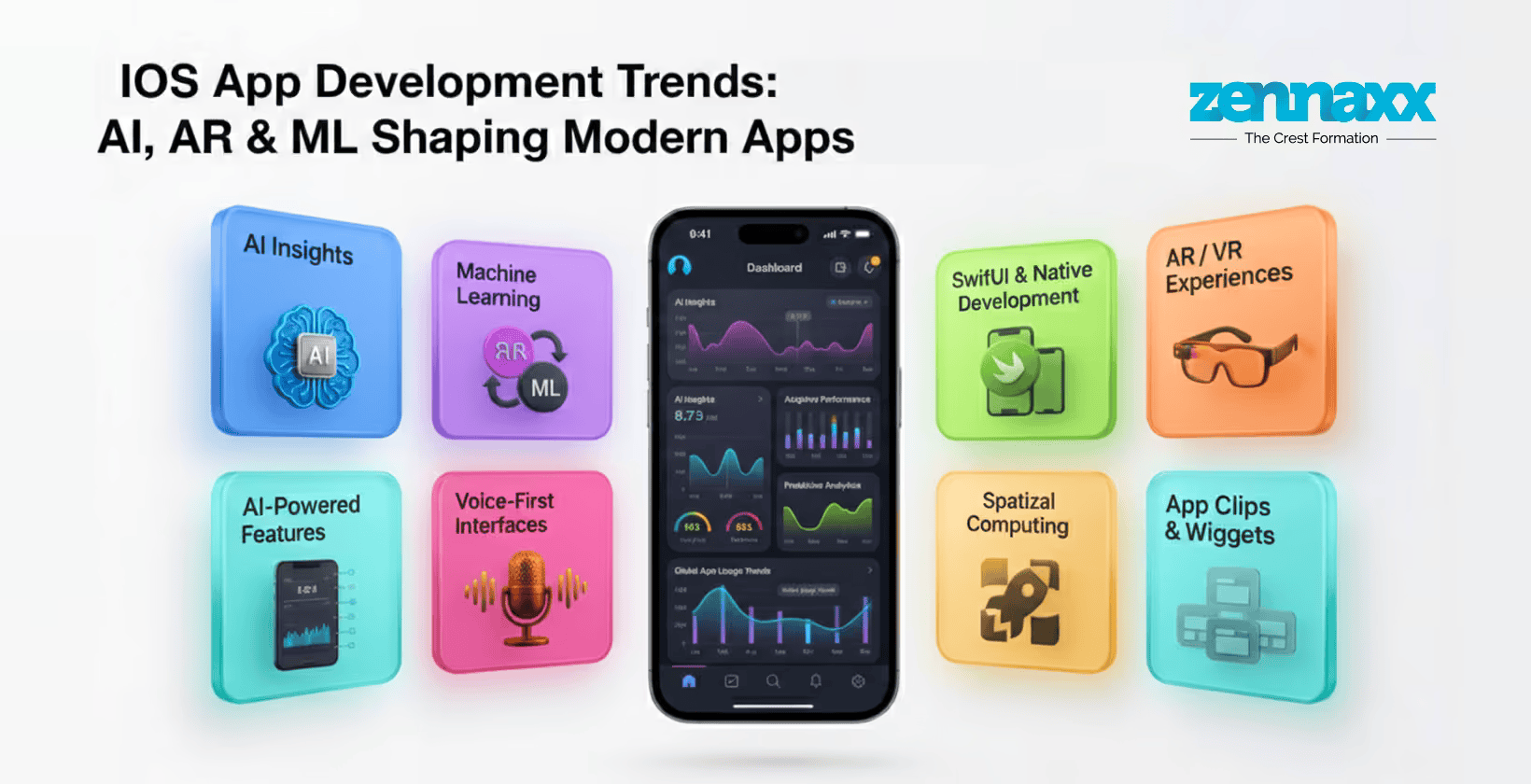
What is the Kotlin programming language?
The Kotlin programming language is a modern, open-source programming language developed by JetBrains, the creators of IntelliJ IDEA, in 2011. Kotlin runs on the Java Virtual Machine (JVM) and compiles native code, which allows it to support Android, server-side, web, and multiplatform development. Kotlin is object-oriented and offers higher-order functions, lambdas, and extension functions for writing clean, expressive code. Kotlin was officially released in 2016 and has been used for over 13 years as of 2025. Google announced Kotlin as one of the official programming languages for Android development in 2017, which rapidly accelerated its adoption.
What is the file extension for Kotlin source files?
Is Kotlin a scripting language?
What is an example of Kotlin code?
An example of Kotlin programming language code is written below.
Is Kotlin easy to learn?
What are the Features of the Kotlin programming language?
The features of the Kotlin programming language include core capabilities that enhance code safety, reduce boilerplate, and support modern development practices.
zennaxx.com/mobile-app-development-languages/
- Java Interoperability: Kotlin offers full interoperability with Java, which allows Kotlin and Java code to work together within the same project without compatibility issues. Java interoperability supports Kotlin adoption in Android and enterprise environments and enables developers to reuse existing Java libraries and migrate code without rewriting large codebases.
- Null Safety: Kotlin uses a strict type system to distinguish between nullable and non-nullable types, which helps developers catch potential null-related issues at compile time. Null safety protects Kotlin applications from null pointer exceptions, which are a common source of crashes in legacy Java codebases.
- Concise and Expressive Syntax: Kotlin reduces boilerplate by offering features such as default parameters, smart constructors, and simplified property access. Concise syntax supports Kotlin by making code easier to read and maintain, which allows developers to focus on core logic instead of writing repetitive patterns.
- Coroutines for Asynchronous Programming: Coroutines in Kotlin enable developers to write non-blocking asynchronous code in a simple, sequential format. Coroutines support Kotlin by simplifying background tasks such as network requests and database operations, which improves app performance and responsiveness.
- Type Inference: Kotlin automatically detects variable types at compile time and eliminates the need for explicit type declarations. Type inference supports Kotlin by reducing repetitive code and improving readability while preserving strict type safety across the codebase.
- Smart Casts: Kotlin performs automatic type casting after a successful type check, allowing direct access to properties or methods without manual conversion. Smart casts support Kotlin by improving conditional logic, reducing casting errors, and simplifying code that works with mixed or dynamic data types.
- Functional Programming Support: Kotlin supports functional programming through features such as higher-order functions, immutability, and lambda expressions. Functional programming enhances Kotlin by allowing developers to write testable logic, especially in use cases such as transforming collections or composing operations in a single expression.
- Data Classes: Data classes in Kotlin generate common utility methods such as equals(), hashCode(), and toString() based on the class properties. Data classes support Kotlin by simplifying the creation of model objects, which improves efficiency when working with API responses, UI states, and local data representations.
- Extension Functions and Scope Functions: Extension functions allow developers to add new behavior to existing classes without changing their source code. Scope functions such as let, apply, and run support Kotlin by improving object configuration and making code more expressive, especially in chained or context-based operations.
- Companion Objects and Object Declarations: Companion objects allow developers to define static-like members inside a class, while object declarations are used to create single instances known as singletons. Companion objects and object declarations support Kotlin by providing centralized access to shared resources such as service handlers or constants without requiring class instantiation.
What are the uses of the Kotlin programming language?
The uses of the Kotlin programming language cover full-stack applications, server-side systems, data science, and cross-platform mobile solutions.
Listed below are the 5 uses of the Kotlin programming language.
1. Android Mobile App Development
Kotlin is used to build modern Android applications with tools such as code completion, debugging, and project templates designed for Kotlin development. Kotlin is primarily used for Android app development and is officially approved by Google as the preferred language over Java. Features such as null safety, extension functions, and coroutine support allow developers to write secure, readable, and responsive mobile applications. Kotlin plays a central role in Android development worldwide, with over 70% of the mobile market running on Android devices.
2. Web Application Development
Kotlin is used to develop web applications on both the frontend and backend using tools such as Kotlin/JS and frameworks such as Spring Boot and Ktor. Kotlin is not primarily used for web development, but continues to gain popularity as a flexible alternative to Java in full-stack environments. Strong static typing and Java interoperability help Kotlin reduce development errors, improve backend maintainability, and support clean integration. Kotlin allows developers to share code between client and server, reduce duplication, and gradually migrate legacy Java projects into a cleaner Kotlin-based architecture.
3. Server-Side Applications
Kotlin is used to develop server-side applications through frameworks such as Spring Boot, Ktor, and Micronaut that support modular and scalable architecture. Kotlin is not primarily used for backend development, but its use is growing steadily in enterprise systems as a cleaner alternative to Java. Coroutine-based concurrency and Java interoperability allow Kotlin to perform non-blocking I/O operations and plug directly into existing Java server frameworks. Major companies such as Google and Amazon use Kotlin on the server to modernize their backend services and improve developer productivity.
4. Data Science
Kotlin is used in data science for building data pipelines and creating machine learning workflows with the help of libraries such as KotlinDL and existing Java-based tools. Kotlin is not primarily used for data science but is gaining adoption in projects that benefit from strong typing and modern syntax. Kotlin supports data-heavy tasks through null safety, functional programming constructs, and integration with Jupyter and Zeppelin to enable reliable data pipeline development. Kotlin supports reusability and integration with existing Java libraries, which makes it easier to adopt in enterprise environments where Java is already established.
5. Cross-Platform Development
Kotlin is used for cross-platform mobile development using Kotlin Multiplatform Mobile (KMM). KMM allows teams to share business logic across Android and iOS from a unified Kotlin codebase. Kotlin is not primarily used for cross-platform apps, but adoption is rising in companies seeking native performance with shared code efficiency. Kotlin/Native and multiplatform support allow developers to compile code for Apple devices and reuse logic across multiple platforms without relying on web views or JavaScript bridges. Kotlin Multiplatform Mobile minimizes code duplication and accelerates delivery timelines for mobile apps targeting both Android and iOS platforms.
Is Kotlin used to develop iOS applications?
Yes, Kotlin is used to develop iOS applications by sharing business logic through Kotlin Multiplatform Mobile (KMM). KMM allows developers to write core functionality once in Kotlin and compile it for both Android and iOS, while still using Swift or Objective-C to build native iOS user interfaces. Kotlin/Native compiles Kotlin code into native binaries for Apple platforms to enable full integration with iOS system APIs.
What are the pros and cons of using Kotlin?
The Kotlin programming language offers powerful advantages for modern software development, but also presents a few limitations depending on the use case.
Listed below are the 5 advantages of using Kotlin programming language.
- Java Interoperability: Kotlin offers full Java interoperability, which allows Kotlin code to directly interact with Java libraries, tools, and frameworks without modification. Java interoperability in Kotlin enables teams to continue using proven Java ecosystems while writing new features in a modern language.
- Null Safety: Kotlin provides built-in null safety by distinguishing between nullable and non-nullable types at compile time. Null safety in Kotlin eliminates the risk of null pointer exceptions, which are a leading cause of crashes in Java applications.
- Concise and Readable Syntax: Kotlin reduces boilerplate code through features like type inference, smart casts, and data classes. Kotlin simplified syntax allows developers to write clean, expressive code faster, which improves productivity and long-term maintainability.
- Strong Tooling and Android Support: Kotlin is officially supported by Android Studio and includes optimized tools such as Android KTX and the Kotlin plugin. Developers benefit from advanced IDE features such as intelligent code completion, lint checks, and instant project configuration.
- Advanced Language Features: Kotlin supports advanced language constructs such as extension functions, smart casts, sealed classes, and type-safe builders. Kotlin’s language features improve code expressiveness, reduce structural complexity, and allow developers to implement flexible, maintainable solutions.
Listed below are the 3 disadvantages of using Kotlin programming language.
- Slower Compilation Time (in Some Cases): Kotlin’s full build times are often slower than Java, especially in large projects or when incremental compilation is not triggered. Slower Kotlin compilation can delay feedback cycles during development and affect overall productivity in teams managing complex codebases.
- Limited Learning Resources Compared to Java: Kotlin has fewer long-standing learning resources, third-party libraries, and comprehensive documentation than Java. Kotlin’s smaller ecosystem makes it difficult for developers to find Kotlin-specific tutorials or implementation patterns when solving complex problems.
- Larger Runtime for Simple Projects: Kotlin adds extra runtime dependencies such as the Kotlin standard library, which slightly increases the final size of compiled applications. Kotlin’s runtime requirements make it less ideal for use cases where performance and storage constraints take priority over advanced language features.
What are some common Kotlin libraries and frameworks?
The Kotlin programming language includes adopted libraries and frameworks that support modern application development across Android, web, and cross-platform environments.
Listed below are of the most widely used Kotlin frameworks and libraries.
- Ktor: Ktor is an asynchronous web framework built with Kotlin to develop server-side applications, REST APIs, and microservices. Ktor supports coroutines and offers full control over HTTP pipelines, which makes it ideal for building scalable and responsive backend systems.
- Kotlin Multiplatform Mobile (KMM): Kotlin Multiplatform Mobile enables cross-platform mobile development by allowing developers to share business logic between Android and iOS. KMM reduces code duplication and increases development efficiency without compromising native performance.
- Spring Boot (with Kotlin support): Spring Boot is a Java framework that fully supports Kotlin for building enterprise-grade web applications and microservices. Kotlin’s concise syntax and Spring’s ecosystem improve developer productivity and integration speed.
- Koin: Koin is a dependency injection framework created specifically for Kotlin. Koin simplifies service management by eliminating boilerplate and supports Android and server-side applications through its lightweight, DSL-based setup.
- Kotest: Kotest is a Kotlin-native testing framework that supports property-based, behavior-driven, and data-driven testing. Kotest improves test readability and provides expressive, maintainable testing styles aligned with Kotlin’s syntax.
Popular Kotlin Libraries
- Kotlinx.coroutines: Kotlinx.coroutines is Kotlin’s official library for asynchronous programming using coroutines. Kotlinx.coroutines simplifies concurrency and background task handling in Android, web, and backend development.
- Kotlinx.serialization: Kotlinx.serialization is a multiplatform library that allows Kotlin objects to be serialized into JSON, ProtoBuf, or other formats. Kotlinx.serialization supports type safety and is commonly used in API integration and data interchange.
- Android KTX: Android KTX is a Kotlin extension collection that makes Android APIs more concise and idiomatic. Android KTX library improves the Android development experience by reducing verbosity in view binding, fragment management, and SharedPreferences tasks.
- MockK: MockK is a modern Kotlin-native mocking library used in unit and integration testing. MockK supports coroutine mocking, static method mocking, and flexible test verification, which makes it a popular choice in Kotlin testing environments.
- Kotlinx.datetime: Kotlinx.datetime provides a consistent and multiplatform date-time API for Kotlin. TKotlinx.datetime library supports Android, iOS, JavaScript, and JVM targets, which helps developers manage date-time logic across projects with type safety and immutability.
